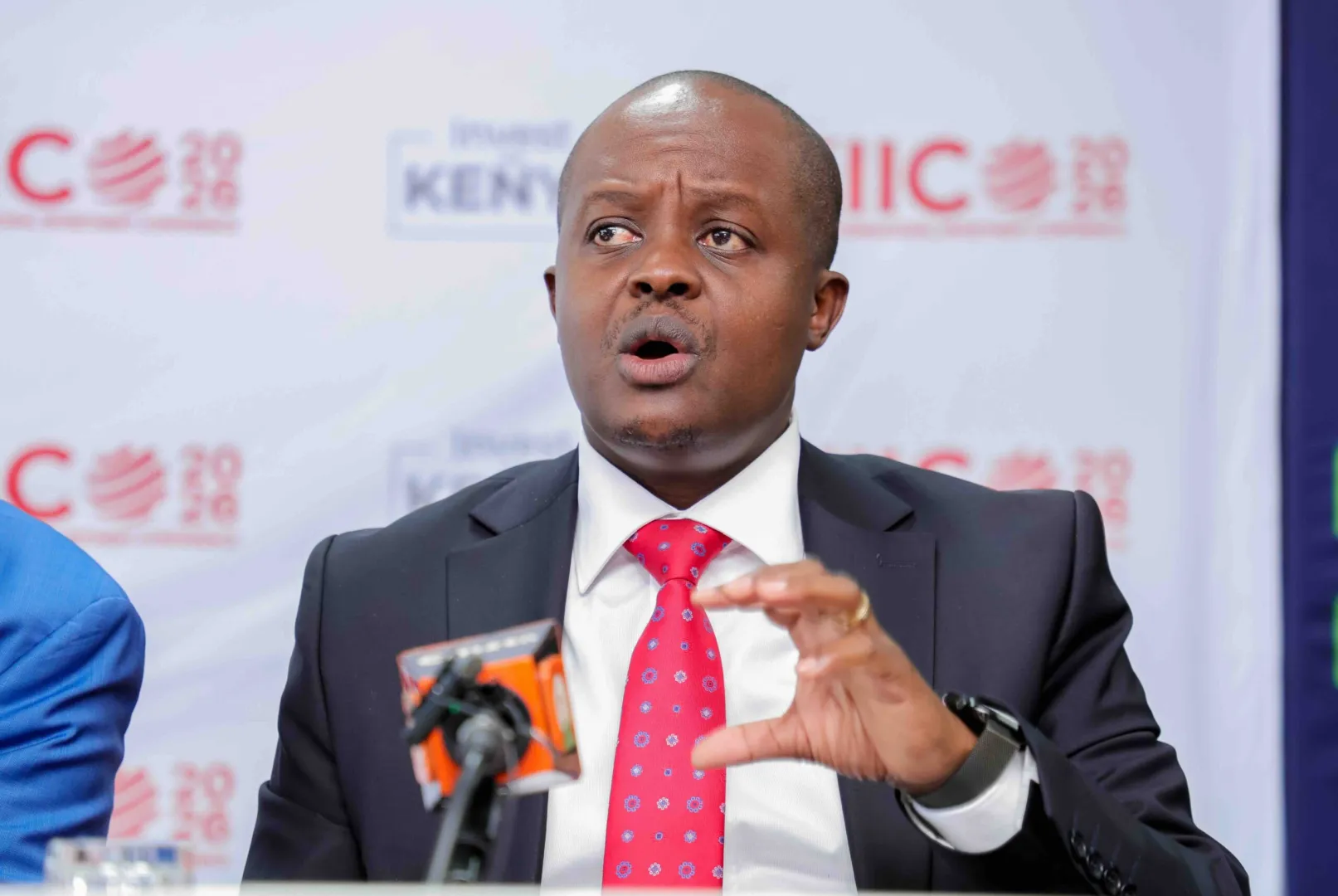Safaricom PLC, East Africa’s leading telecommunications provider, has received critical regulatory approval from the Capital Markets Authority to establish a Sh40 billion Medium-Term Note (MTN) programme, marking a significant milestone in the company’s ambitious expansion strategy across the region. The approval positions the telecommunications giant to raise substantial long-term capital through Kenya’s debt market to finance infrastructure development in both Kenya and Ethiopia.
The regulatory clearance, granted on November 7, 2025, under Section 30A of the Capital Markets Act, represents one of the largest corporate bond programmes approved in the Kenyan market this year. The framework allows Safaricom to issue various classes of notes—including green, social, and sustainability notes—in multiple tranches, providing the company with flexibility in timing and structuring its debt offerings based on market conditions.
Build the future you deserve. Get started with our top-tier Online courses: ACCA, HESI A2, ATI TEAS 7, HESI EXIT, NCLEX-RN, NCLEX-PN, and Financial Literacy. Let Serrari Ed guide your path to success. Enroll today.
Strategic Framework for Capital Raising
In a public announcement, Company Secretary Linda Mesa Wambani expressed the Board of Directors’ satisfaction with the regulatory milestone. “The Board of Directors of Safaricom PLC are pleased to announce that the Capital Markets Authority has on November 7, 2025, granted approval for the Company to establish a Medium Term Note programme pursuant to which the Company will issue notes in an aggregate principal amount of up to Kenya Shillings Forty Billion,” she stated.
The MTN programme structure offers Safaricom significant advantages over traditional single-issuance bonds. By establishing this framework, the telecommunications company can access the capital markets multiple times without seeking fresh regulatory approval for each issuance, reducing transaction costs and accelerating the fundraising process when market conditions are favorable.
Initial Tranche Launch and Documentation
Safaricom has announced plans to launch the programme with the release of comprehensive documentation for the first tranche of notes. The company will publish an information memorandum and a pricing supplement for Tranche 1, which will outline the specific commercial terms including the interest rate, maturity period, and other critical conditions that will govern the debt instrument.
“The Company intends to launch the MTN Programme with an information memorandum and a pricing supplement for the issuance of the first tranche of notes,” the official announcement confirmed. These documents are crucial for potential investors as they provide detailed information about the company’s financial position, the intended use of proceeds, risk factors, and the legal framework governing the notes.
However, the actual issuance of the first tranche remains contingent on several factors. Safaricom emphasized that the launch is subject to the determination of final commercial terms and the CMA’s approval of the corresponding pricing supplement. This approval process ensures that all investor protection measures are in place and that the terms offered are fair and transparent.
Growing Trend in Corporate Bond Market
Safaricom joins a growing list of major Kenyan corporations tapping the debt market for expansion capital. The company becomes the latest blue-chip firm to receive approval for a corporate bond programme, following East African Breweries Limited (EABL), which has successfully utilized similar instruments to fund its operations across the region.
The corporate bond market in Kenya has experienced significant growth over the past decade, evolving into a viable alternative to bank lending for large corporations. This development has been supported by regulatory reforms and the deepening of Kenya’s capital markets, which now offer companies diverse options for raising long-term capital.
A corporate bond is a debt instrument issued by a company to raise capital from investors, who in turn receive regular interest payments—known as coupon payments—and the return of their principal investment at maturity. These instruments have become increasingly popular among Kenyan corporations seeking to diversify their funding sources and match their long-term assets with long-term liabilities.
Understanding Corporate Bonds and Their Function
In financial markets, corporate bonds function as a key source of long-term funding for businesses seeking to expand operations, refinance existing obligations, or invest in major infrastructure projects. Unlike government bonds, which are backed by the sovereign guarantee of the state, corporate bonds carry varying levels of credit risk depending on the issuing company’s financial strength, market position, and business model.
Financial analysts note that investors typically purchase these securities for predictable income streams and portfolio diversification benefits. In an environment where interest rates on traditional savings products remain relatively low, corporate bonds from established companies like Safaricom offer attractive risk-adjusted returns for institutional investors, pension funds, insurance companies, and high-net-worth individuals.
Companies may issue different categories of bonds based on their financing needs and credit profile. Investment-grade bonds are issued by companies with strong credit ratings and lower default risk, typically offering lower interest rates. High-yield bonds, sometimes called junk bonds, carry higher interest rates to compensate investors for elevated risk. Additionally, sustainability-linked notes—which Safaricom’s framework includes—tie the bond’s financial characteristics to the issuer’s achievement of predefined environmental, social, or governance targets.
One decision can change your entire career. Take that step with our Online courses in ACCA, HESI A2, ATI TEAS 7, HESI EXIT, NCLEX-RN, NCLEX-PN, and Financial Literacy. Join Serrari Ed and start building your brighter future today.
Market Dynamics and Investor Considerations
Market observers note that the performance and attractiveness of corporate bonds are influenced by multiple factors including prevailing interest rates, broader economic conditions, and the issuer’s creditworthiness. When interest rates rise, existing bonds with lower coupon rates become less attractive, causing their market prices to decline. Conversely, when rates fall, existing bonds with higher coupons increase in value.
The current macroeconomic environment in Kenya presents both opportunities and challenges for corporate bond issuers. The Central Bank of Kenya’s monetary policy stance, inflation trends, and exchange rate stability all play crucial roles in determining investor appetite for corporate debt instruments. Safaricom’s strong market position and diversified revenue streams position it favorably to attract investor interest even in challenging market conditions.
Credit rating agencies play a vital role in the corporate bond market by assessing and publishing ratings that reflect their opinion on the issuer’s ability to meet its debt obligations. These ratings significantly influence the interest rate that companies must offer to attract investors, with higher-rated issuers able to borrow at lower costs.
Safaricom’s Financial Position and Strategic Imperatives
Safaricom’s decision to pursue this substantial debt programme reflects the company’s strategic priorities and capital requirements. The telecommunications sector requires continuous and significant investment in network infrastructure, technology upgrades, and geographic expansion to maintain competitive advantage and service quality.
In Kenya, where Safaricom commands a dominant market share in mobile telephony and mobile money services through M-PESA, the company faces the dual challenge of maintaining its leadership position while expanding into new markets. The Ethiopian market, where Safaricom launched operations in recent years, represents a significant growth opportunity but also requires substantial capital investment in infrastructure and market development.
The company has been investing heavily in expanding its 4G and 5G network coverage across Kenya, upgrading existing infrastructure, and developing new digital services beyond traditional voice and data offerings. These investments are capital-intensive and require long-term funding that matches the long-term nature of the assets being created.
By utilizing the corporate bond market rather than relying solely on bank financing, Safaricom can access a broader investor base, potentially secure more favorable terms, and diversify its funding sources. This approach reduces concentration risk and provides greater financial flexibility for the company’s management team.
Green, Social, and Sustainability Notes
A notable feature of Safaricom’s MTN programme is the inclusion of green, social, and sustainability notes among the classes of instruments that can be issued. This reflects the growing importance of environmental, social, and governance (ESG) considerations in corporate finance and investment decisions.
Green bonds are debt instruments where the proceeds are exclusively used to finance or refinance projects with environmental benefits, such as renewable energy installations, energy efficiency improvements, or clean transportation infrastructure. Social bonds fund projects that address social issues or provide positive social outcomes, such as affordable telecommunications access, community development, or education initiatives.
Sustainability bonds combine elements of both green and social bonds, with proceeds allocated to projects that deliver both environmental and social benefits. The inclusion of these options in Safaricom’s framework demonstrates the company’s commitment to sustainable business practices and positions it to tap into the growing pool of ESG-focused investment capital.
International investors and development finance institutions increasingly prioritize ESG factors in their investment decisions, and issuers that can credibly demonstrate positive environmental and social impact often benefit from lower borrowing costs and stronger investor demand. Safaricom’s mobile money platform, which has significantly improved financial inclusion across Kenya, could potentially qualify for social or sustainability bond designation, making such issuances particularly attractive to impact investors.
Regulatory Framework and Investor Protection
The Capital Markets Authority’s role in approving and overseeing the MTN programme is crucial for maintaining investor confidence and market integrity. The CMA ensures that all disclosure requirements are met, that the offering documents provide comprehensive and accurate information, and that appropriate governance structures are in place.
Section 30A of the Capital Markets Act provides the legal framework for such programmes, establishing the regulatory requirements that issuers must meet. This includes provisions related to continuous disclosure obligations, financial reporting standards, corporate governance requirements, and investor protection mechanisms.
The approval process involves detailed scrutiny of the issuer’s financial statements, business model, risk management practices, and the proposed terms of the securities. The CMA also ensures that the offering documents clearly articulate the risks involved and provide potential investors with the information needed to make informed decisions.
For Safaricom, compliance with these regulatory requirements demonstrates the company’s commitment to transparency and good corporate governance, which in turn enhances its credibility with investors and supports demand for its debt securities.
Implications for Kenya’s Capital Markets
Safaricom’s Sh40 billion MTN programme represents a significant development for Kenya’s capital markets. Large issuances by blue-chip companies like Safaricom help deepen the market, provide benchmarks for pricing other corporate debt, and demonstrate the viability of the bond market as a funding source for corporate expansion.
The success of such programmes encourages other companies to consider the debt capital markets as an alternative to traditional bank financing, contributing to the development of a more diversified and resilient financial system. It also provides institutional investors with additional investment opportunities that can help them meet their return objectives while managing risk through portfolio diversification.
Kenya’s capital markets have undergone significant transformation over the past two decades, evolving from a relatively small equity market to a more comprehensive platform encompassing government securities, corporate bonds, derivatives, and other instruments. Large corporate bond programmes contribute to this evolution and help position Nairobi as a regional financial center.
Looking Ahead
As Safaricom prepares to launch the first tranche of its MTN programme, market participants will be watching closely to gauge investor appetite and pricing dynamics. The company has indicated that it will provide additional updates as preparations progress, keeping stakeholders informed about the timing and terms of the initial issuance.
The successful execution of this programme will depend on multiple factors including market conditions at the time of issuance, the specific terms offered to investors, and broader economic trends. However, Safaricom’s strong brand, dominant market position, and track record of financial performance position it favorably to attract significant investor interest.
For the broader telecommunications sector and corporate Kenya, Safaricom’s initiative may set important precedents and demonstrate the continued viability of the corporate bond market as a source of long-term capital for strategic investments. The inclusion of green, social, and sustainability notes options also signals a maturation of Kenya’s sustainable finance market.
As East Africa’s economic landscape continues to evolve and companies pursue regional expansion strategies, innovative financing structures like MTN programmes are likely to play an increasingly important role in supporting corporate growth ambitions while providing investors with attractive opportunities to participate in the region’s development story.
The telecommunications sector’s capital-intensive nature and the ongoing digital transformation across the continent ensure that companies like Safaricom will continue to require substantial funding for infrastructure development and service expansion. How they access this capital—whether through equity markets, bank lending, corporate bonds, or hybrid instruments—will significantly influence both corporate strategy and the development of regional financial markets.
Safaricom’s Sh40 billion MTN programme thus represents more than just a single company’s financing decision; it reflects broader trends in corporate finance, capital markets development, and the growing sophistication of East Africa’s investment landscape.
Ready to take your career to the next level? Join our Online courses: ACCA, HESI A2, ATI TEAS 7 , HESI EXIT , NCLEX – RN and NCLEX – PN, Financial Literacy!🌟 Dive into a world of opportunities and empower yourself for success. Explore more at Serrari Ed and start your exciting journey today! ✨
Track GDP, Inflation and Central Bank rates for top African markets with Serrari’s comparator tool.
See today’s Treasury bonds and Money market funds movement across financial service providers in Kenya, using Serrari’s comparator tools.
photo source: Google
By: Montel Kamau
Serrari Financial Analyst
20th November, 2025
Article, Financial and News Disclaimer
The Value of a Financial Advisor
While this article offers valuable insights, it is essential to recognize that personal finance can be highly complex and unique to each individual. A financial advisor provides professional expertise and personalized guidance to help you make well-informed decisions tailored to your specific circumstances and goals.
Beyond offering knowledge, a financial advisor serves as a trusted partner to help you stay disciplined, avoid common pitfalls, and remain focused on your long-term objectives. Their perspective and experience can complement your own efforts, enhancing your financial well-being and ensuring a more confident approach to managing your finances.
Disclaimer: This article is for informational purposes only and does not constitute financial advice. Readers are encouraged to consult a licensed financial advisor to obtain guidance specific to their financial situation.
Article and News Disclaimer
The information provided on www.serrarigroup.com is for general informational purposes only. While we strive to keep the information up to date and accurate, we make no representations or warranties of any kind, express or implied, about the completeness, accuracy, reliability, suitability, or availability with respect to the website or the information, products, services, or related graphics contained on the website for any purpose. Any reliance you place on such information is therefore strictly at your own risk.
www.serrarigroup.com is not responsible for any errors or omissions, or for the results obtained from the use of this information. All information on the website is provided on an as-is basis, with no guarantee of completeness, accuracy, timeliness, or of the results obtained from the use of this information, and without warranty of any kind, express or implied, including but not limited to warranties of performance, merchantability, and fitness for a particular purpose.
In no event will www.serrarigroup.com be liable to you or anyone else for any decision made or action taken in reliance on the information provided on the website or for any consequential, special, or similar damages, even if advised of the possibility of such damages.
The articles, news, and information presented on www.serrarigroup.com reflect the opinions of the respective authors and contributors and do not necessarily represent the views of the website or its management. Any views or opinions expressed are solely those of the individual authors and do not represent the website's views or opinions as a whole.
The content on www.serrarigroup.com may include links to external websites, which are provided for convenience and informational purposes only. We have no control over the nature, content, and availability of those sites. The inclusion of any links does not necessarily imply a recommendation or endorsement of the views expressed within them.
Every effort is made to keep the website up and running smoothly. However, www.serrarigroup.com takes no responsibility for, and will not be liable for, the website being temporarily unavailable due to technical issues beyond our control.
Please note that laws, regulations, and information can change rapidly, and we advise you to conduct further research and seek professional advice when necessary.
By using www.serrarigroup.com, you agree to this disclaimer and its terms. If you do not agree with this disclaimer, please do not use the website.
www.serrarigroup.com, reserves the right to update, modify, or remove any part of this disclaimer without prior notice. It is your responsibility to review this disclaimer periodically for changes.
Serrari Group 2025
















